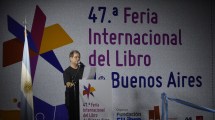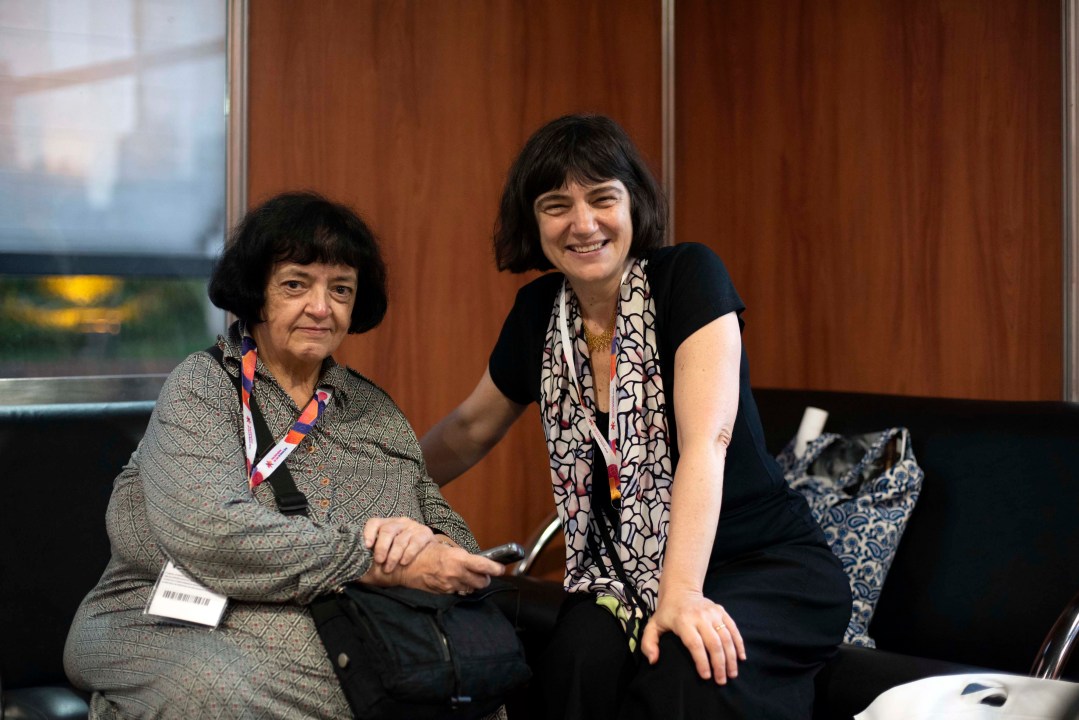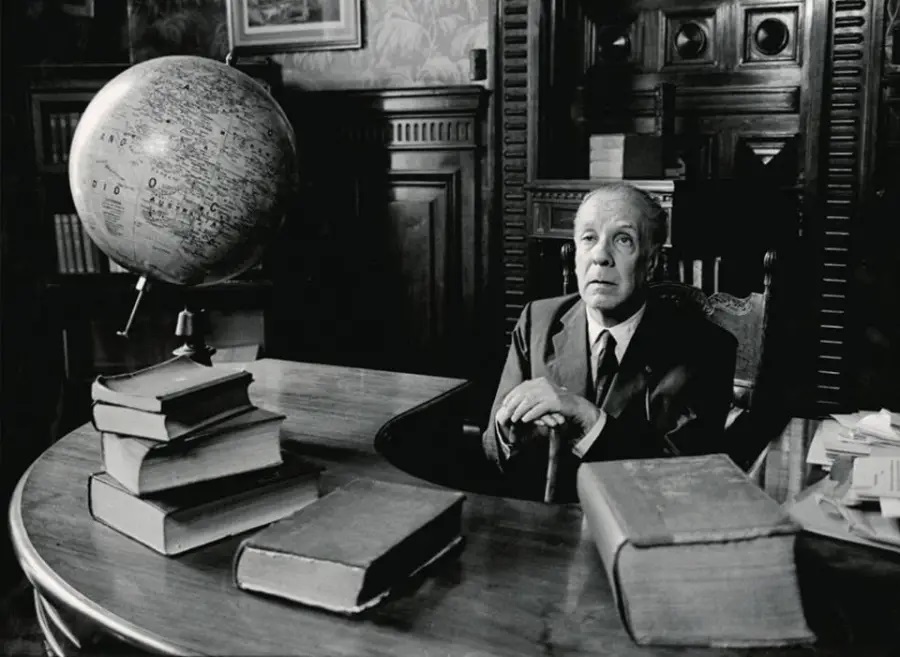Annick Louis, French-Argentine expert in the work of Jorge Luis Borges who participates in the Borges Sessions at the Book Fair, has dedicated himself to studying, among other aspects, the political gestures that the author of “Fictions” made throughout his work, from the selection of texts he made to demonstrate its opposition the policy of the government of the first Peronism until his efforts to point out that he was living off his retirement as director of the National Library, “because he did not want anyone to think that there was an economic connection between him and the dictatorship, even though he supported it, until 1980,” says the researcher.

Annick Louis is Graduated from the Letters career of the Faculty of Philosophy and Letters from the University of Buenos Aires, PhD from the École des Hautes Études in Social Sciences and teacher-researcher at EHESS and the University of Reims. Before participating in the Borges Conference for the hundred years of “Fervor de Buenos Aires” within the framework of the Book Fair, he explains to Télam that the writer’s work is a constant “work in progress”, in which the process of re-editing “unknown” texts has transformed and continues to transform the image of the writer and his work.
In the 50’s, Borges reduced his corpus from 800 to approximately 252 texts. counting his poems, according to the 1953 edition of his «Complete Works» in Emecé, explains the researcher. For Louis, that selection operated by the writer to make up his complete works was partly a political gesture, since the project was born during the first Peronism, when the author of “El Aleph” he was “excluded from official recognition circuits” and he was opposed to both government policy and the aesthetics valued by it. Thus, Borges renounced a part of his production and a conception of the writer.

Born in Buenos Aires in 1964, the researcher has lived in France since 1991 and is the author of “Jorge Luis Borges: Obra y manoeuvres”, a book that analyzes the interventions of Jorge Luis Borges in the Multicolor Magazine during 1933-1934.
Q: In your works it is clear that Borges was always very faithful to his literary conceptions, but did he also seek to establish a dialogue with the media in which he published?
A.L.: We are accustomed to thinking of books as the central element of literate culture, but before, magazine networks were the pillar of literate culture, then they were read and circulated, literature and criticism were produced in them, and groups and groups were formed. alliances: the network of magazines and supplements does not reflect culture, it creates it. Simultaneously the magazines result from groups, alliances, common interests. The constructive role that they had and still have in culture is difficult to perceive, because magazines tend to be ephemeral publications, little preserved. But for Borges the two moments are capital: publication in a magazine and publication in a book. For this reason, he conceives ways of preserving some traces of the publication in a magazine, as if by moving the texts he wanted something of the first roots that he had to remain, while, at the same time, creating new roots in the volume.
Q: Borges proposed appropriating what was foreign and universalizing what was his own. Seeing the worldwide impact of his literature, do you think he achieved it?
A.L.: I would say yes and no, and it is not an answer that seeks to avoid taking a position. If one thinks of criollismo in historical terms, the answer is no: Borges’ poetry, his essays from the 1920s, do not have, outside of Argentina, the impact and significance that they had, and have, for us. And I don’t think it’s a difficulty necessarily linked to the translation, but to its strong contextual roots. What is certain is that Borges came to think, at the end of the 1920s, that he did not want to remain in the history of literature as a local poet, as an example of typical poetry of a region, and this at a time when that his contemporaries consider him the poet of the city of Buenos Aires. One, of course, can discuss whether or not this is the case with the poetry of his period, whether he really is a Creole or not, but without a doubt at that moment it does not seem possible to him to become a universal author as a writer of poetry.
For Borges, the universal and the Creole do not contradict or oppose each other, but intermingle, they are impossible to separate: they are not two different cultural zones, but intermingled networks. And his literature has shown it: Borges continues to be one of the authors most cited as a productive reference by writers from other cultural areas.

Q: How do you explain that today there is talk of a drifting inheritance of millions of dollars in copyright but until the late 1970s Borges needed the income as director of the National Library to live?
A.L.: During the Process, for Borges it is an important point: he constantly points out that he lives off his retirement from the position of director of the National Library. I think he did not want anyone to think that there was an economic connection between him and the dictatorship, even when he supported it, until 1980. Borges’s position was always particular, because he belonged to a wealthy class, but he needed a fixed salary. , even if it was unimportant, to live, after the death of his father. Magazines and supplements also come into play here, because many of them paid for collaborations.
I think that the discovery of the police is essential for Borges. Police plots fascinate him because of their effectiveness, or lack thereof, they interest him in technical terms ».
Annick Louis.
Q: How did Borges respond when in the 1920s from Madrid they proposed to him to be the intellectual meridian of Latin America?
A.L.: In those years, the editorial conflicts were also language conflicts, in which Borges was going to take a position: the famous “The language of the Argentines” is, in fact, Borges’ response to the polemic of the meridian: when the Literary Gazette de Madrid in 1924 affirmed that Madrid should be the intellectual meridian of Latin America, the young people of the Martín Fierro magazine, as is well known, responded with indignation.
Borges proposes two answers: one in the issue of the magazine, with a very beautiful text, comparing and diminishing Madrid, and also a few months later in the conference “El idioma de los argentinos”, delivered at the Instituto Popular de Conferencias, in Buenos Aires, on September 23, 1927, that is, almost immediately after the publication of Martín Fierro’s responses. In the first he has a phrase that amazes me, for those who know the context it is unique: speaking of Madrid he says “a city whose Irigoyen is Rivera’s cousin.” In the second, he marks the line of his future aesthetic: language is not a question of vocabulary but of context, the national language is not played in lunfardo (or other local forms), but in how we use it.
Q: What is your main focus in your analysis of Borges’ work as a detective storyteller?
A.L.: I think that the discovery of the police is essential for Borges. Police plots fascinate him for their effectiveness, or lack of it, they interest him in technical terms: police plots demand efficiency and accuracy in the chain of events, and they have to move away from the obvious and from what has already been done by other writers. For Borges, of course, because we can say that there are police officers that work from the same narrative structures, which are the ones that do not interest him. One can see the proceedings of Agatha Christie’s “The Murder of Roger Ackroyd” in “The Man in the Pink Corner”: it is the murderer who narrates the murder, laying clues, and this identity is revealed at the end.
In addition, Borges recovers the idea of the enigma from the policeman. Many of his texts in «Ficciones» and «El Aleph» work from an enigma, but one that does not necessarily refer, or rather almost never refers, to a crime: in «La muerte y la brújula» the enigma is what is the city; in “La casa de Asterión” the identity of the character who narrates the first part of the story. But there are more undecidable systems, such as “The Garden of Forking Paths”, where the character creates an enigma, but whether or not it is deciphered by the person to whom it is addressed is impossible to establish, or rather: there are two possible versions. , that of the character who believes that the message reached its destination and that of the editor, the first narrator who frames the manuscript, which rather leads one to think that it has not. Borges’s idea is that the police plot is a solid and difficult structure, and in this he opposes the vision of many intellectuals of the time who consider that the police is a minor genre, a mere distraction. In some text from the 1930s, Victoria Ocampo says that when she has a headache, she takes aspirin or reads a detective story.
This interest in the enigma, on the other hand, refers back to his conception of the relationship between literature and reality as an enigma. And also “Enigma” is the name of the machine that encoded and decoded the information used by the Nazis.
What is interesting in Borges is that the use of the enigma turns inward: the texts also raise the question: what is an enigma? But for Borges the essential thing is not the answers, but always the questions.
Carlos Aletto/Télam Agency
To comment on this note you must have your digital access.
Subscribe to add your opinion!
Subscribe
